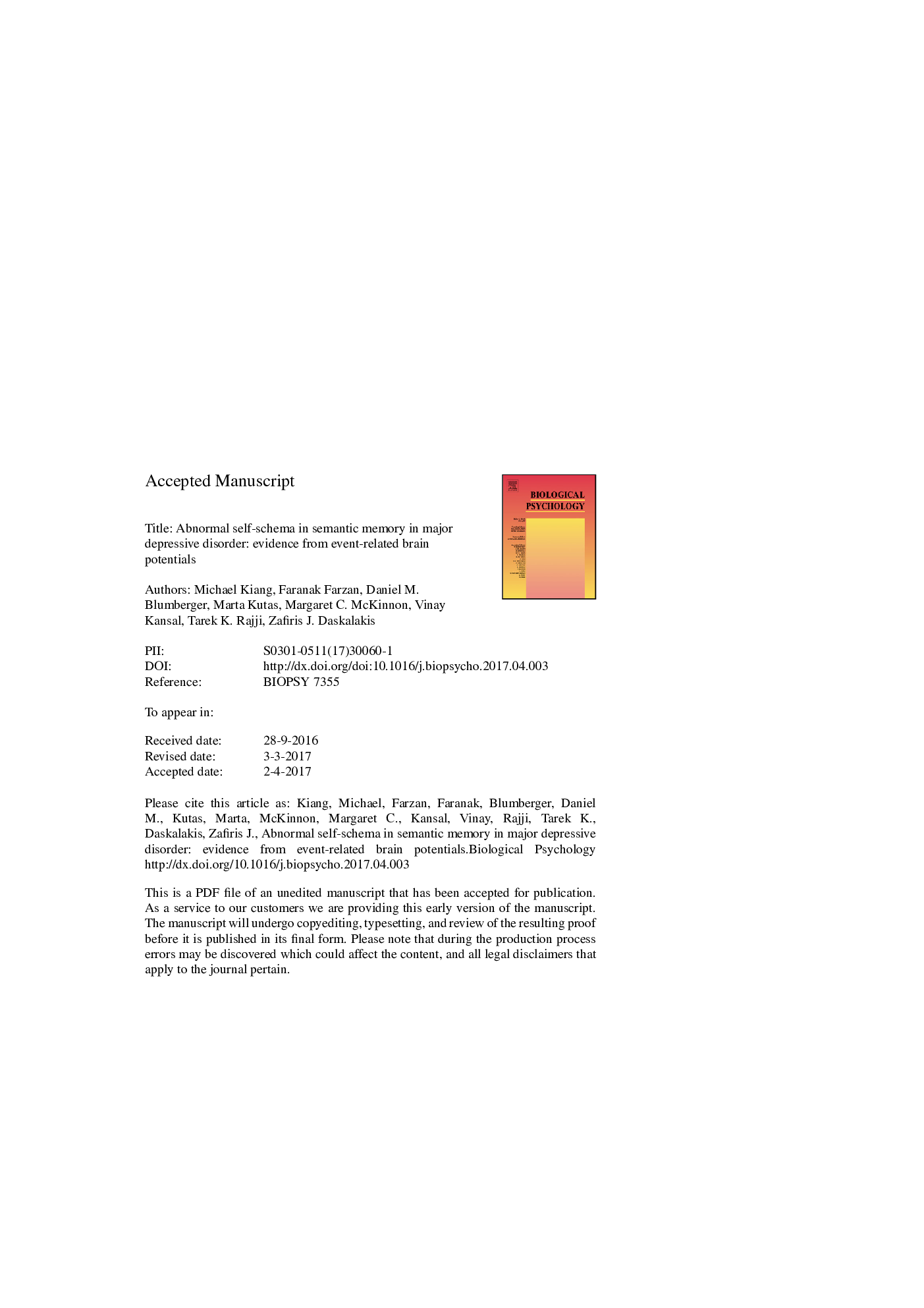| Article ID | Journal | Published Year | Pages | File Type |
|---|---|---|---|---|
| 5040423 | Biological Psychology | 2017 | 29 Pages |
Abstract
An overly negative self-schema is a proposed cognitive mechanism of major depressive disorder (MDD). Self-schema â one's core conception of self, including how strongly one believes one possesses various characteristics â is part of semantic memory (SM), our knowledge about concepts and their relationships. We used the N400 event-related potential (ERP) â elicited by meaningful stimuli, and reduced by greater association of the stimulus with preceding context â to measure association strength between self-concept and positive, negative, and neutral characteristics in SM. ERPs were recorded from MDD patients (n = 16) and controls (n = 16) who viewed trials comprising a self-referential phrase followed by a positive, negative, or neutral adjective. Participants' task was to indicate via button-press whether or not they felt each adjective described themselves. Controls endorsed more positive adjectives than did MDD patients, but the opposite was true for negative adjectives. Patients had smaller N400s than controls specifically for negative adjectives, suggesting that MDD is associated with stronger than normal functional neural links between self-concept and negative characteristics in SM.
Keywords
Related Topics
Life Sciences
Neuroscience
Behavioral Neuroscience
Authors
Michael Kiang, Faranak Farzan, Daniel M. Blumberger, Marta Kutas, Margaret C. McKinnon, Vinay Kansal, Tarek K. Rajji, Zafiris J. Daskalakis,
